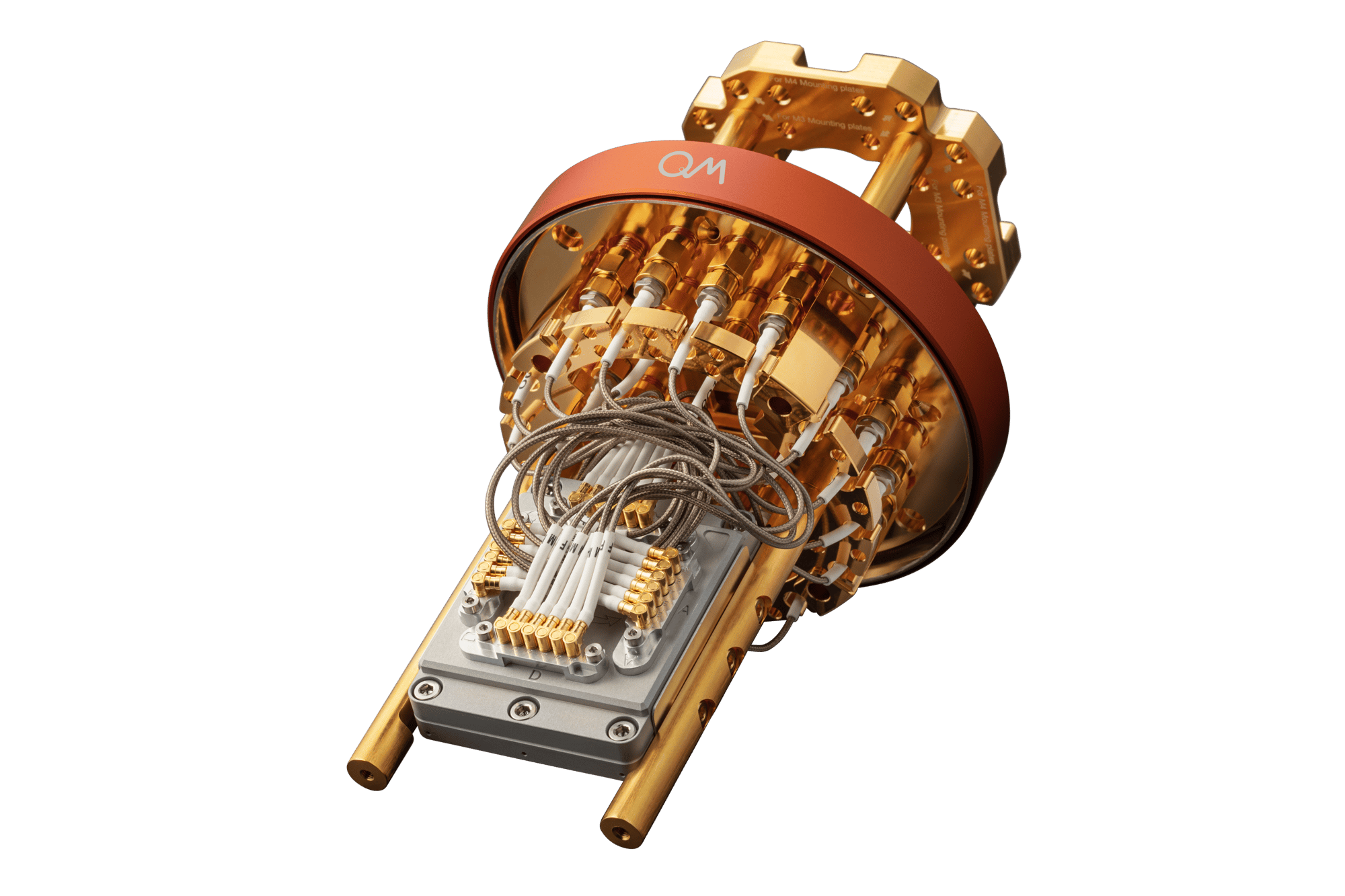For High-Fidelity Operation of Multi-Qubit Processors

QCage.64 is a revolutionary new qubit chip sample holder for quantum processors with up to 30 qubits. It's part of the QCage product family from QDevil (the Quantum Electronics business unit now part of Quantum Machines). By careful engineering, the design has been optimized to offer both superior qubit performance and a seamless workflow in the lab going from fabrication through wire bonding and device prescreening and all the way to full stack quantum computer integration.
Product Highlights:
- Sample chip suspended in cavity to minimize losses and decoherence.
- Low loss PCB with embedded coplanar transmission lines for signal integrity.
- Cavity and PCB optimized for resonance free transmission.
- EMC tight superconducting shielding enclosure.
Benchmarking data from several leading quantum labs have shown that the QCage chip carrier offers a unique low loss environment for operating superconducting resonators with Q factors as high as 200 million and transmon qubits with coherence times of longer than 200 microseconds.
The superior performance in combination with the flexibility for establishing an easy workflow makes the QCage an extremely powerful tool for a seamless high performance integration of superconducting quantum processors to the full stack.
Request More Information
QCage.64 is an upscaled microwave chip carrier package for interfacing superconducting quantum processors with up to 30 qubits.

.png)
“QCage integrates seamlessly into our workflow of preparing and loading QPUs and supports higher throughput in our lab. Our research directly benefits from QCage's innovative design and engineering.”
Prof. Javad Shabani, New York University
.png)
“QM's chip packaging solutions are exquisite pieces of engineering that have enhanced our resonator Q-factors to as much as 200 million. It is clearly a very highly engineered product that I am sure will be widely adopted in our field.”
Kevin Crowley, Houck Lab, Princeton University